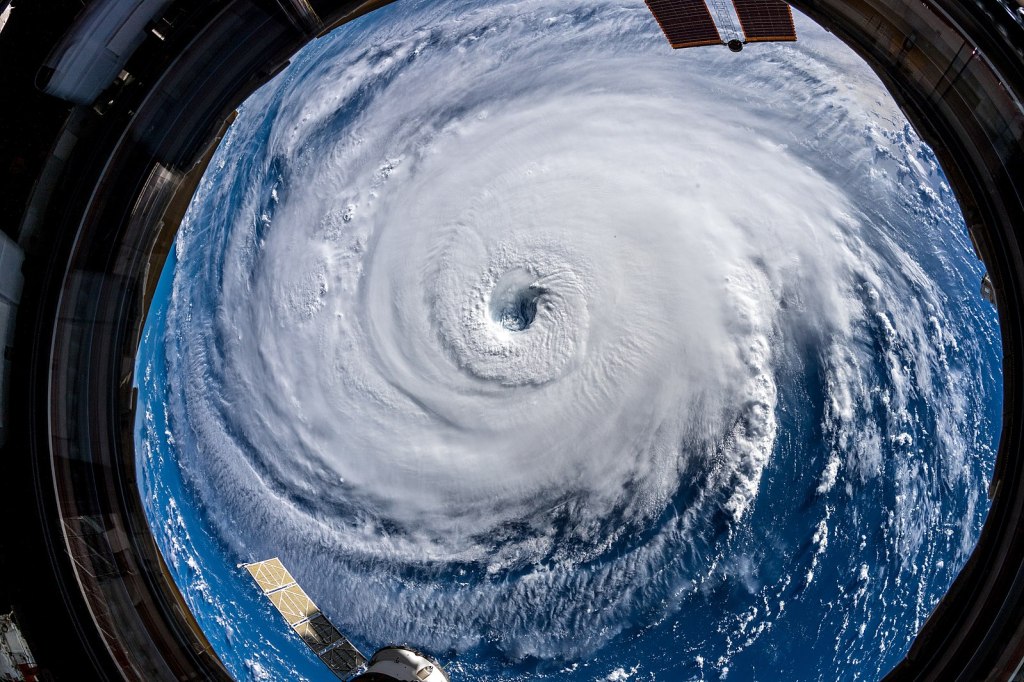Every day, there are probably a good 50 articles published in major news outlets in the West on climate change. I just searched for “climate change” in the news over the past 24 hours and got over 200 results. Nearly all of them are about how bad the climate “crisis” is. Reuters reports, for example, that Asia’s Biggest Security Threat Is Climate Change, Not Conflict. In the New York Times we read: The Planet Is Burning. Are Billionaires the Answer? The Weather Channel tells us that Asian Water Tower Imbalanced Due to Climate Change. Climate change is ruining tourism, worsening and extending the allergy season, making ocean predators hungrier, keeping us up at night, threatening mental health, and doxing humpback mojo. Sometimes it seems as if all of the world’s problems can be traced back to climate change.
They can’t, of course, but the alarmism in the media regarding the supposed negative effects of climate change is something to behold. The planet has certainly been getting warmer since we’ve measured worldwide temperatures, but it’s not clear that this is necessarily a bad thing. One of the major problems with climate change alarmism is that it assumes too much on too little data. I was reminded of this while I was reading this piece on hurricanes in the Bahamas. You would think that the number of hurricanes in the Bahamas has increased greatly over the past two hundred years, but it turns out that the number is at an historic low:
For the new study, Winkler and his team drilled 18 meters into the sediment at the bottom of Hine’s Hole, recovering cores representing the past 540 years of deposition. After comparing the top layers to the modern hurricane record, the researchers have high confidence that Hine’s Hole recorded every Category 2 or higher hurricane within 75 kilometers. Analyzing the cores even further shows that the number of tropical cyclones roiling this corner of the Bahamas is in a historical lull.
“Over the last 170 years, we’ve had about five hurricanes per century on average,” Winkler says of the local record from Hine’s Hole. “But the rate has been almost eight times that in the past.”
According to the research, the area around Hine’s Hole has experienced major swings in storm frequency since 1480. The team cross-checked their findings with other Bahamian blue holes, as well as with tree rings and even ship captains’ logs. The study shows that hurricane activity has dipped since the 1860s, shortly after modern record-keeping began. That means every hurricane since Alfred Nobel invented dynamite has occurred during a historically quiet period in the area.
The original article, published in Marine Geology, notes that temperature plays a significant role in the frequency of hurricanes and predicts an increased number of hurricanes as temperature increases. However, it also reminds us how little information we have when it comes to understanding the historical changes in weather and temperature. According to the research, the two biggest peaks in hurricane activity in the Bahamas were in the mid-1500s and early 1800s. This should, at the very least, temper climate crisis hysteria.
In other news
Picasso’s “How To Draw” books that he created for his daughter go on display for the first time in Paris: “Picasso filled the pages with playful scenes – animals, birds, clowns, acrobats, horses and doves – which would delight any child, as well as adults. He created them for Maya Ruiz-Picasso when she was aged between five and seven. On some pages, the little girl made impressive attempts to imitate the master. She also graded her father’s work, scribbling the number “10” on a circus scene, to show her approval.”
Rachel Cooke reviews a radical new book making the case against 21st-century feminism:
For all the gains that the sexual revolution has brought women – chiefly the freedom to have sex without the fear of getting pregnant – those who have benefited from it most, according to Perry, are men. In a world in which sex is now just another leisure activity, and in which to be anything other than “sex positive” is to be, at best, a killjoy and, at worst, someone who is harbouring deep internalised shame, women must remain eternally silent about certain behaviours. They must celebrate “kinks”; they must enjoy porn; they must consider “sex work” a valid choice (even as, say, they disapprove of clothing sweatshops). Above all, they must f— like a man, celebrating this as hard-won equality, and never, ever texting afterwards.
Is Ukraine’s cultural heritage under coordinated attack? “Sites are suffering widespread destruction, but a coalition of organisations is working to provide evidence of deliberate targeting by Russian forces.”
In praise of bookstores: “Can man live on what he has read alone? Jeff Deutsch ruminates on this question in his recent collection of essays celebrating bookstores and their stewards.”
Noah Millman reviews Joel Coen’s film adaptation of Macbeth: Denzel Washington’s Macbeth is
reduced further by the intellectualism and self-conscious classicism of Coen’s chosen style. I have mentioned Dreyer, but Joan of Arc is a very hot piece of cinema, one that revels in the grotesquerie of faces and bodies. That style could suit Macbeth well. Coen, though, is surprisingly decorous in his treatment of the play’s horrors. Blood is barely shown, more often signified (the dripping water from a basin that Macbeth has knocked aside, for instance); even the brutal murder of Macduff’s son is sanitary, the boy tossed over a railing into a mist, and vanishing. Stark lighting, a set inspired by de Chirico, and skewed camera angles all signify expressionism, but Washington is lost in this funhouse playing an ordinary and fully comprehensible man. The only thing that could save him is Shakespeare’s language; that jewel could shine even in this cold and austere box. But Washington’s naturalism undermines the power of the verse; the words feel authentic and original to him, but we can’t always tell what they mean and, more importantly, they do not take possession of us.
Jem Aswad reviews the founder of Island Records Chris Blackwell’s “fascinating” memoir, The Islander: “If you’re even a minor fan of music books, stop reading this article and buy his autobiography.”
I watched the Kids in the Hall documentary and the new season of the show on Amazon Prime: “Fans, of course, will still enjoy the new episodes, but the documentary is more interesting. It has a ton of archival footage of the Kids doing early performances at the Rivoli and of their first year in New York, and features all five members sharing memories from the early years. It becomes clear that the Kids will always be a comedy troupe of the ’90s. No other time could have given us something so bizarre and anarchic.”
Conor Friedersdorf: “Scholars should drive out overzealous administrators, not vice versa.”

























